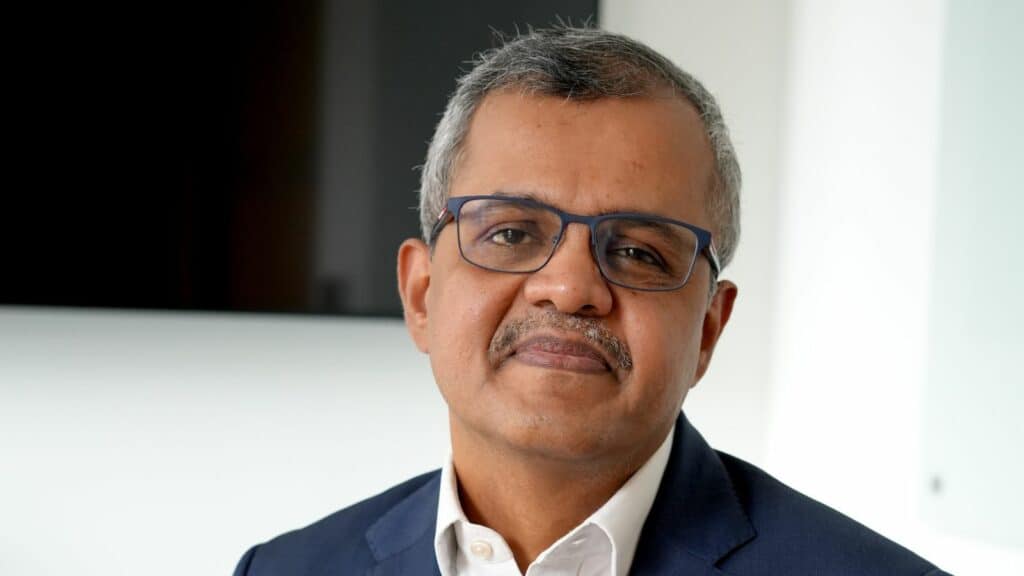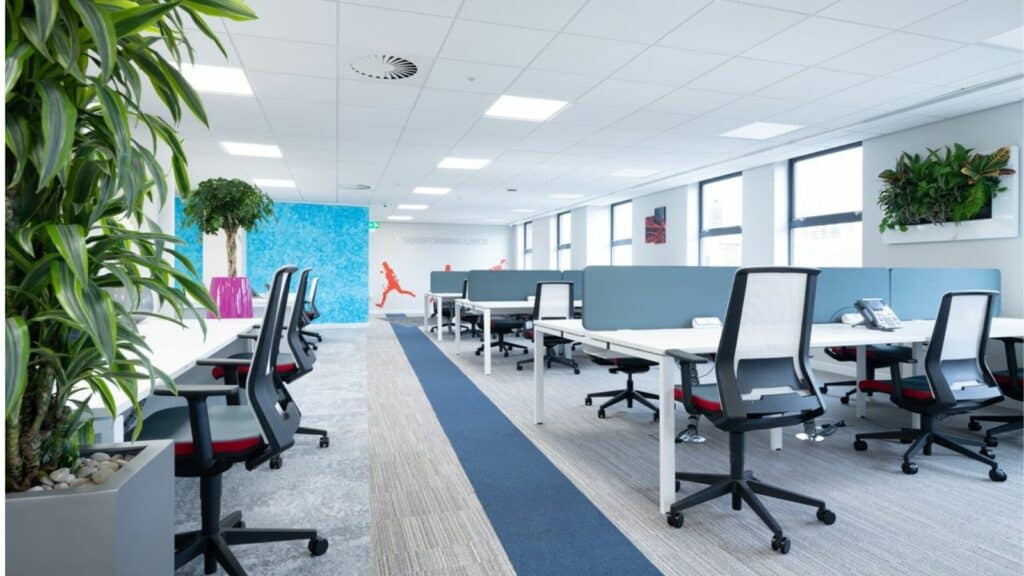California-headquartered digital transformation specialist UST has exclusively revealed plans to “double down” on its growth plans and expand its offering in Leeds – as well as a hint at further expansion in the North.
Following the opening of its first UK office in London back in 2006, UST selected Leeds as its second UK location in 2018 in a ‘strategic move’ to invest in talent outside of the capital.
“We used to take great pride in saying that we are the best kept secret of Silicon Valley. Not anymore,” Praveen Prabhakaran, chief delivery officer at UST, tells Prolific North.
“We want to make sure we are visible to talent in the market so that they can understand who we are.”
For those unfamiliar with the company, UST marks its 25 years in business this year, providing businesses with digital transformation solutions and is currently ‘on track’ for $2bn revenues this year.
With more than 29,000 employees globally, although we were unable to verify the number of employees based out of the Leeds office at Jubilee House, talent is “critical” to UST’s growth plans.
“A lot of the leaders you see today at UST are people who were fresh out of college way back in 1999. That’s how UST has been able to create a purpose behind its entire growth story,” explains Prabhakaran, who has been with the business for 23 years.
“For us, talent is not about just having a person at a desk. It’s about purpose, we want to enable people to build breakthrough solutions that can solve some of the problems that our customers are struggling to address.
“We are very selective in terms of making sure the investments are not only a focus on UST, but also enabling talent to have a career path in technology.”

When looking for a “launch pad” at a new location that could “benefit” from UST’s investment in technology, that’s when the idea for a Leeds office was first introduced.
“We saw that Leeds had a good customer base for us to focus on and good infrastructure,” he explains. “Then we focused on how we create a digital hub there, so we can invest in the local talent to help them have a career path in technology.”
Since launching the office, UST has established a “whole slew of offerings” including cyber and now has future “aspirations” to establish a security operations centre (SOC) in Leeds.
“For Leeds, one of the focus areas is on cyber skills. We already have a cyber testing unit there and we want to expand that into a fully fledged cyber offering centre.”
UST has also launched a skills development centre in Leeds, a training programme to support up-and-coming talent and offer them opportunities to get involved in UST projects.
“I don’t see any North/South divide”
From partnerships with the likes of Leeds University to support students with internships to working with West Midlands Combined Authority to boost tech recruitment, the big plan is to “catch talent pretty early in their careers”.
“We are big advocates of the local authority programmes or boot camps, because that’s the right way to help the talent get the required confidence to have a career in technology.
“When we look at these programmes, we should have an opportunity to offer these students a project or two where they can try out what they learned. It’s not about just getting them trained, then leaving them in the lurch. They need all the guidance and hand holding.
“An advantage that the boot camps bring to table is that it helps you to promote diversity.”
Although he doesn’t agree that there is a North vs South divide when it comes to talent, he does agree that the Northern tech ecosystem needs a more structured approach.
“In terms of ambition or aspirations, I don’t see any North/South divide. The ambition, aspirations and skills are there and the talent is available.
“The gap is that there are more programmes and sponsorship in London than in the North. There are a lot of programmes out there, but how do we make the programmes real? By bringing in the local authorities, universities and other players to have a more coordinated approach in building the talent ecosystem.
“Right now, it may be happening on a programme to programme basis but I am not sure if there’s a structured approach to compound the benefit that the programmes can generate.”
The digital and tech ecosystem in Leeds and Northern expansion on the horizon?
With the launch of a new initiative to train more than 25,000 employees globally in Generative AI (GenAI), he explains it will provide opportunities for career advancement and alleviate any staff apprehensions about how the evolving technology may transform job roles.
“The focus on generative AI is definitely there. We want to make sure our employees understand and appreciate what this is all about, what it means for their career and address any apprehensions over job security.
“UST is all about empowering people with the right know-how, so that they can decide what is good for them.
“The only way to help the industry is by bringing in the right talent who are immersed in the right usage of technology.”
Explaining how the business is now embedded in the digital and tech ecosystem in Leeds, he shares plans to grow this further.

“It’s not just about focusing on internal talent. It’s also equally important for us to look at how we immerse ourselves with the talent out there in the market, in academia and the start-up ecosystem. We have a partnership with London & Partners for example, we are also trying to do that with the likes of Leeds Teaching Hospital up North.
“We are about to launch our hackathon across the UK with a strong focus up North in Leeds, and with some of the academies with whom we have partnerships with there. We don’t only focus on internal skills programmes, we had multiple hackathons last year up North to catch those talents and those ideas that could benefit from investment.”
As for the future, he says UST wants to “double down” on its growth story and replicate its successes in other Northern cities to invest and train new waves of talent into careers in technology.
When pressed on what that means, he says “expanding UST’s presence in the North” – and there are a “number of cities” in contention.
“We are reviewing it. We want to make sure wherever we go that we have active projects and people are able to see a career with UST and secondly, what technology we want to take a bet on in which location.
“One thing we are really toying with is building a data science academy in a few cities, in partnership with academia. It’s those kinds of things we will look at to help us in prioritising the right location.”











